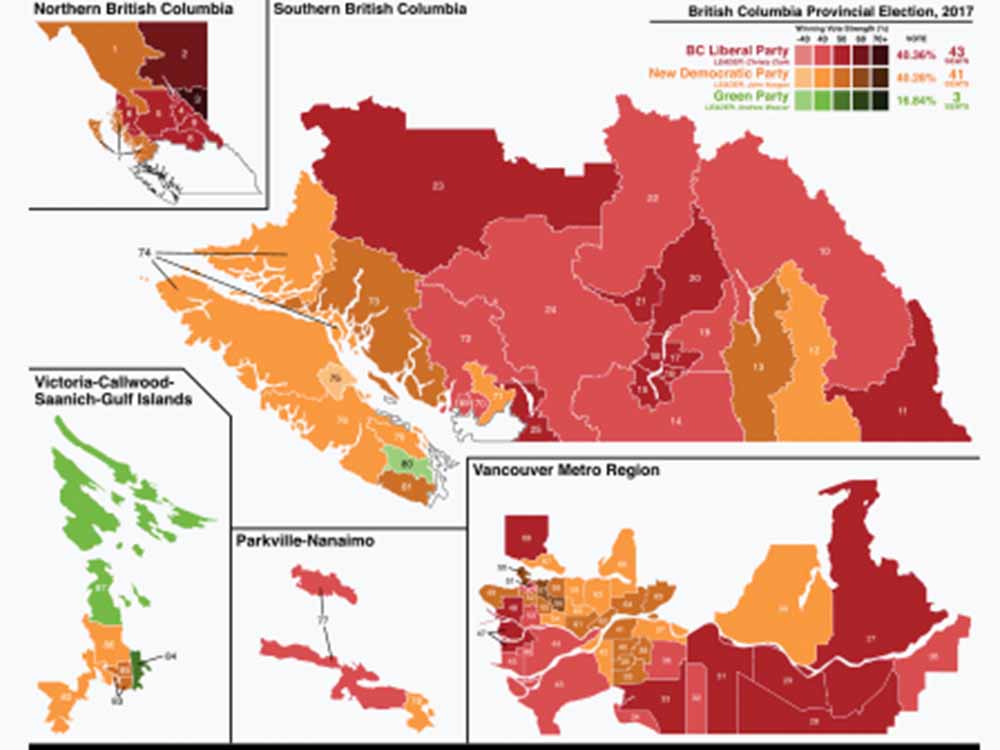British Columbia Election 2017 – A Pivotal Moment in Provincial Politics
The British Columbia (BC) election of 2017 marked a crucial juncture in the province’s political landscape. This election was marked by a closely contested race, significant policy debates, and the potential for a change in government that could reshape BC’s direction on key issues.
The Background and Key Parties
British Columbia, located on the west coast of Canada, has a dynamic political scene with several major parties vying for power. The 2017 election featured three main parties:
- BC Liberal Party: The incumbent party, led by Christy Clark, had been in power for over 16 years. The BC Liberals positioned themselves as center-right, advocating for economic growth, resource development, and fiscal responsibility.
- BC New Democratic Party (NDP): Led by John Horgan, the NDP represented the center-left and focused on issues such as healthcare, education, and affordable housing. They aimed to challenge the long-standing BC Liberal government.
- BC Green Party: Led by Andrew Weaver, the Green Party was an emerging force in BC politics. The party emphasized environmental sustainability, social justice, and electoral reform.
The Outcome – A Minority Government
The 2017 BC election resulted in a unique and historically significant outcome. The BC Liberals won the most seats in the legislature with 43, but they fell one seat short of a majority. The NDP won 41 seats, and the Green Party secured three seats.
With neither of the major parties holding a majority, the election yielded a minority government situation. This required negotiations between the parties to determine who would form the government and under what conditions.
The Confidence and Supply Agreement
In the aftermath of the election, the Green Party emerged as a kingmaker. They held the balance of power and could choose to support either the BC Liberals or the NDP in forming the government.
After weeks of negotiations, the Green Party entered into a Confidence and Supply Agreement with the BC NDP. This agreement allowed the NDP to form a minority government with the support of the Greens on confidence votes and budgetary matters.
The agreement outlined shared policy priorities, including electoral reform, climate action, and affordable housing. It represented a significant shift in BC politics and marked the first time the Green Party played a pivotal role in government.
Implications and Policy Shifts
The 2017 BC election had far-reaching implications for the province. It led to a change in government after over a decade and a half of BC Liberal rule. The NDP government, with the support of the Green Party, pursued policy changes in areas such as housing affordability, environmental protection, and healthcare.
Additionally, the election raised questions about the role of minor parties in Canadian politics and the potential for more proportional representation in BC’s electoral system, a key priority for the Green Party.
In retrospect, the 2017 BC election will be remembered as a turning point in the province’s political history. It highlighted the influence of smaller parties in a minority government scenario and the potential for policy shifts in response to changing voter priorities. The dynamics of this election continue to shape BC’s political landscape today.











